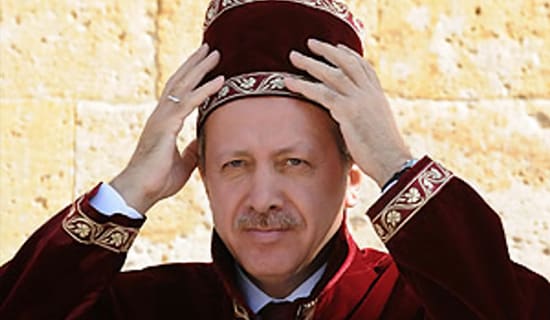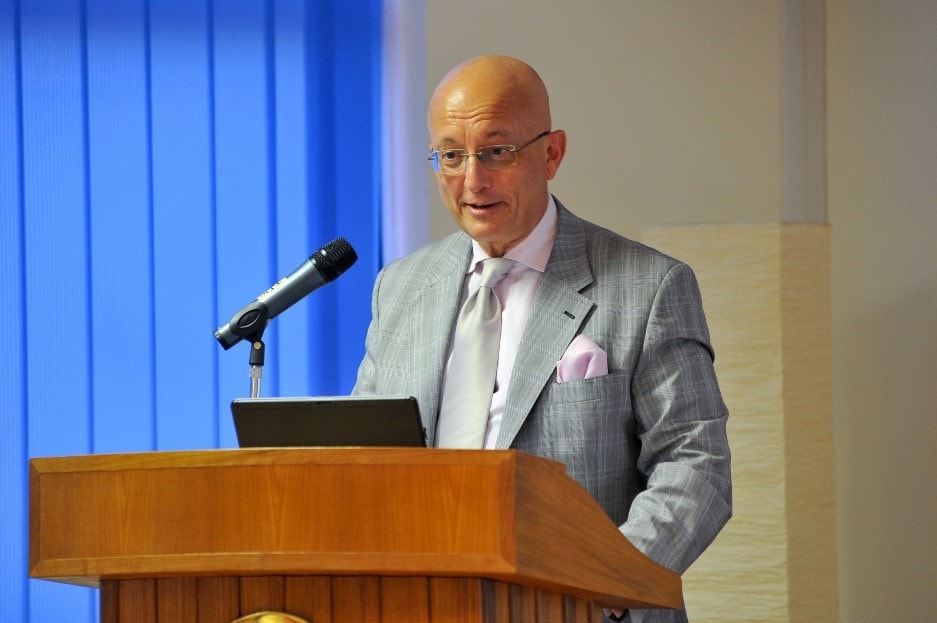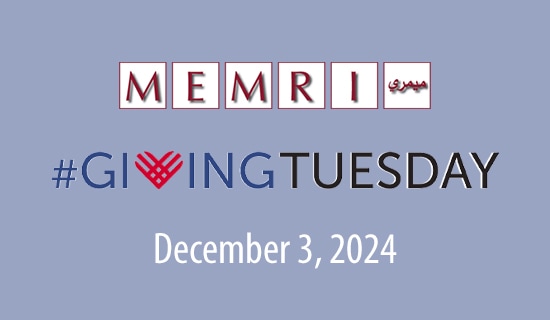On the eve of his speech at the UN General Assembly and his meeting with U.S. President Donald Trump, Palestinian President Mahmoud 'Abbas reiterated his refusal to meet the U.S. and Israeli demand to halt the payment of salaries and allowances to the prisoners and to the families of the martyrs, calling them Palestinian fighters and stressing his commitment to them.[1]
In an interview with the London-based Qatari daily Al-Quds Al-Arabi, 'Abbas referred to the Al-Aqsa events – which erupted following Israel's decision to install metal detectors at the Al-Aqsa compound gates in response to the deadly shooting perpetrated on July 14, 2017 by three Arabs – as "non-violent popular resistance" and stressed that such activity would continue. He also said that security coordination with Israel will not be renewed, explaining that the Al-Aqsa events had provided an opportunity to implement the decision taken two years ago by the PLO Central Committee to suspend the security coordination.
'Abbas criticized Arab countries that are acting to normalize their relations with Israel prior to the signing of a peace agreement between Israel and the Palestinians, stating that this contravenes the Arab peace initiative. He also said that he would take legal and diplomatic action to compel Britain to apologize for the 1917 Balfour Declaration,[2] and criticized the U.S. for failing to pressure Israel to withdraw to the 1967 borders.
The following are excerpts from the interview:[3]

Mahmoud 'Abbas (image: Al-Quds Al-Arabi, London)
Asked whether the popular Palestinian stance in the Al-Aqsa events, and the Palestinian's leadership's support of that stance – "which were victorious" – were indicative of future Palestinian action vis-à-vis Israel, 'Abbas said: "Without a doubt, the position of the Palestinians... reflected an unprecedented [level of] unity among the Palestinians, young and old, [men and] women, Muslims and Christians, in Jerusalem, the West Bank and Gaza. They all stood up as one. And we are not forgetting the Arabs of '48 [i.e., Israeli Arabs]. This is an important position. This is our non-violent popular resistance, and we must adhere to it and continue it. It is crucial resistance, and we must continue this popular resistance every day..."
In response to a question about the current discourse on halting payments to the families of the prisoners and martyrs in response to Israeli and U.S. pressure, Abbas replied, "Israel incites the U.S. to think that the prisoners and martyrs are terrorists. [But] they are fighters and they are our people. We established the Prisoners and Martyrs Authority in April 1965, namely at the start of the revolution, and when we received the first serious sum we deposited it into an account for the families of the martyrs, who are the martyrs of the Palestinian people, and we have been granting them funds ever since... They [Israel and the U.S. can] call them as they wish, but I call them martyrs. Israel and the U.S. have said that this is support for terrorism. I suggested establishing a tripartite committee to discuss the issue and Israel opposed this... I will absolutely not change my mind about this. The families of the martyrs will continue to receive their payments in full, and also the prisoners, of course."
Asked about recent rumors that it was he who stopped the transfer of funds to institutions dealing with the prisoners, such as the Prisoner's Club, 'Abbas said: "During the prisoners' hunger strike, there was a small affair that had several implications and some incorrect behavior was noted, so I established a committee to examine this incorrect behavior. With respect to the Prisoners Club, it will continue to exist, as will the Prisoners Authority. [The latter] will not change, for it is subordinate to the PLO and nothing will affect it in any way..."[4]
'Abbas rejected the efforts of Arab countries to normalize their relations with Israel before the Palestinian-Israeli conflict is settled, saying: "Our position on Arab-Israeli relations is based on the Arab peace initiative that was approved by all the Arab countries at the Beirut Summit in 2002, which determined that, when Israel withdraws from the occupied Arab and Palestinian territories, all Arab countries, and subsequently all Muslim countries, will have the right to recognize the state of Israel. We will not accept anything that deviates from this. We have said more than once and on more than one occasion that we will not agree in any way to implement the Arab initiative in reverse, from the end to the beginning, but only from the beginning to the end. And this applies to every Arab and Islamic country that approved the Arab [peace] initiative."
In response to a question about the security coordination with Israel, the Palestinian president said: "The security coordination is suspended. They [the Israelis] asked to renew it, but we told them, 'let's sit down and discuss the principles that the security coordination will be based on.' When they agree to that, we will be prepared to renew the security coordination. And if they don't agree – let them deal with it. By the way, we in the [PLO] Central Committee decided to suspend the security coordination two years ago, [but] I insisted on delaying the implementation [of the decision] until the right time, and the incidents in Jerusalem were the right time."
About Britain's plans to mark the 100th anniversary of the Balfour Declaration on November 2, 2017, 'Abbas said: "We are taking steps. We told the British: 'You committed a crime against the Palestinian people, so the least you can do is apologize to them and recognize the state of Palestine... But they wouldn't admit it and did not apologize, [but rather] said, 'We will form a committee.' We said we had no objection to that, and agreed to it, but [then] they refused [to establish] the committee, or let us say that they chose to drag their feet in this matter. We are firm in our position, and we will take legal measures... and bring it before British and international courts. [In the Balfour Declaration] Britain wronged us. It negated the presence of about 96% of the residents [of the land], saying that at the most they would have civil rights, and anchored this in the Mandate charter and in the charter of the League of Nations, and [in the end Britain] supported the partition resolution that was never implemented. The law wasn't implemented and the charter wasn't implemented... Later, after it took over our land, Israel attacked... and today it occupies all the land and nobody is doing a thing after 50 years of occupation. I accuse the U.S. first and foremost, because it is the only nation that has to say to Israel: 'You must withdraw from the lands occupied in 1967' and support the establishment of a Palestinian state there."
[1] On the the Palestinian Authority's payments to the prisoners and the families of martyrs, and its refusal to halt them, see MEMRI reports: Special Dispatch No. 7070, Palestinian Media Stresses: President Mahmoud 'Abbas Refuses To Halt Payments To Prisoners, Families Of Martyrs, August 28, 2017; Inquiry & Analysis No. 1327, 2017 Palestinian Authority Budget Shows: Salaries, Benefits For Prisoners, Released Prisoners Several Times Higher Than Welfare For Needy, August 22, 2017; Special Dispatch No. 7001, 'Abbas, PA Officials, Reaffirm Commitment To Continue Paying Allowances To Prisoners And Martyrs' Families, July 10, 2017; Inquiry & Analysis No. 1321, Palestinian Authority, PLO Officials: Allowances To Prisoners Will Continue; 'This Issue Is Not Subject To U.S.-Israeli Extortion,' June 16, 2017.
[2] On the Palestinian campaign to sue Britain for the Balfour Declaration, see MEMRI Inquiry & Analysis No. 1329, Palestinian Campaign To Sue Britain, Demand Reparation For Balfour Declaration. March 12, 2017.
[3] Al-Quds Al-Arabi (London), September 19, 2017.
[4] On May 29, 2014, 'Abbas issued a presidential order according to which the payments to prisoners would no longer be made by the Palestinian Authority's Ministry of Prisoners' Affairs, but rather by a PLO Authority for Prisoners and Released Prisoners Affairs. The aim of this administrative move was to alleviate pressure on the PA by donor countries that do not wish their money to be channeled to support terrorism. However, the offices remained the same and the official in charge remained the same under a new job title. See MEMRI Daily Brief No. 97, MEMRI President Yigal Carmon's Testimony To House Committee On Foreign Affairs, July 6, 2016: Palestinian Authority Support For Imprisoned, Released, And Wounded Terrorists And Families Of 'Martyrs,' July 6, 2016.





